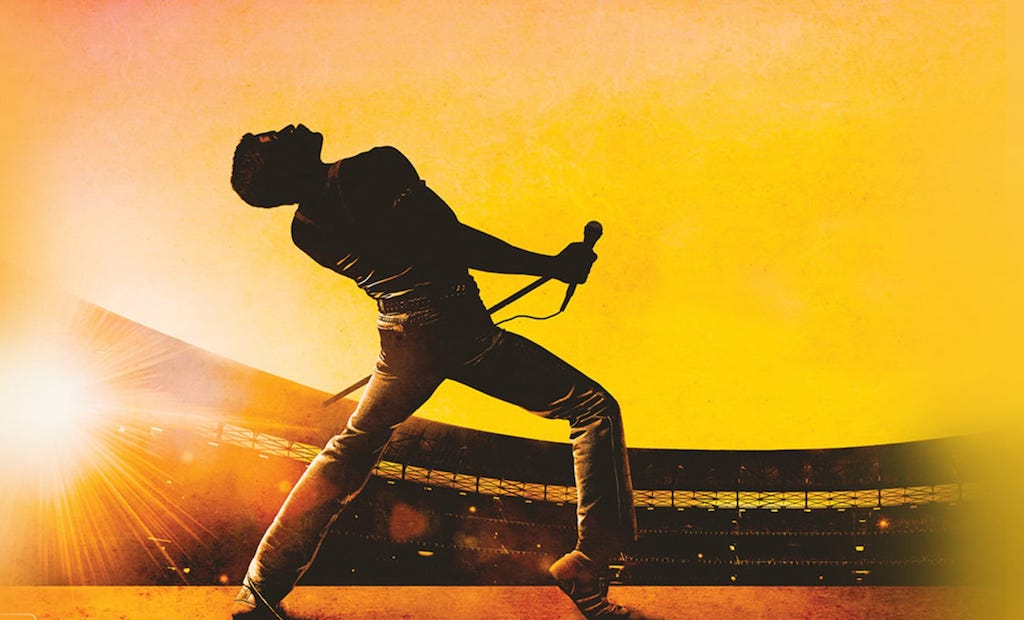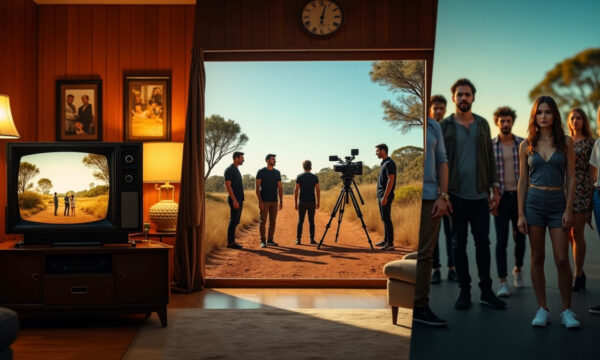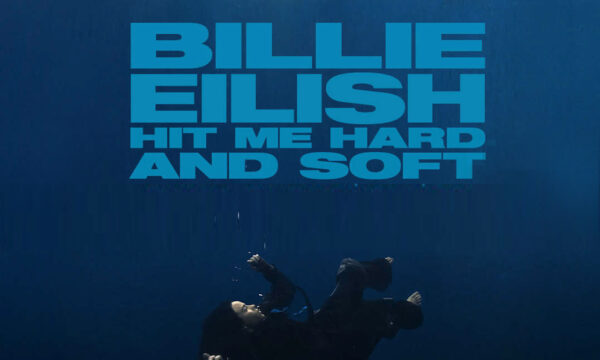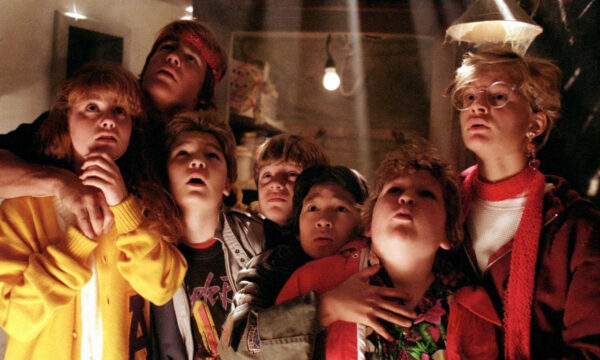Why the lives of musicians have become Hollywood’s golden ticket

Though movies have traditionally offered a means for audiences to escape from the real world for a couple of hours, music-loving cinephiles are increasingly looking for a slice of reality when they buy a ticket. The life stories of some of the biggest musical artists in the world have been embraced by both dramatic Hollywood filmmakers and documentarians alike.
The appeal is clear: a typical biopic or documentary viewer could be a fan who wants to watch their favourite artist’s story unfold in a cinematic setting. They might also be looking for a unique insight into their life that can’t be ascertained through an Instagram profile, and to find out something they didn’t know before.
These types of features have been produced by filmmakers for decades, but they now seem to be more widespread than ever before. Thanks to awards season successes, box office smashes, and the rise of streaming services, music biopics and documentaries have been catapulted to the forefront of the film industry.
Bohemian Rhapsody and beyond
Anticipation for Bohemian Rhapsody, which tells the story of Freddie Mercury and the rise of Queen, was extremely high when the band’s guitarist Brian May first announced the project in 2010. However, after a series of major cast and crew shuffles, its eventual release in late 2018 seemed set to be a huge disappointment. Initial reviews were mixed, with critics slamming everything from the script and editing to the historical inaccuracies and “confused” portrayal of Mercury’s sexuality.
In spite of this lacklustre reception, the film turned out to be a huge hit with the public. In fact, the allure of Bohemian Rhapsody was so strong that the movie went on to make over $900 million in ticket sales across the globe, making it the highest-grossing music biopic in history. And to the dismay of the press, Bohemian Rhapsody reigned supreme during awards season. It won four Oscars, including a Best Actor gong for Rami Malek’s performance as Mercury, two BAFTAs, two Golden Globes, and a SAG Award.
In May 2019, another music biopic stormed the box office. Rocketman, an impressionistic take on the life of Elton John, proved much more popular with critics, who praised the performance of lead actor Taron Egerton, the flamboyant costumes, and musical numbers. The film also stood out as the first major Hollywood production to depict a gay sex scene.
Music biopics are not new. Walk the Line, Straight Outta Compton and Ray are just a few of the genre’s most acclaimed recent examples, but the likes of Coal Miner’s Daughter and Lady Sings The Blues were just as widely-regarded following their release in the 70s. However, industry insiders have noted that the real-life stories of the rich and famous seem particularly popular with today’s filmmakers. “Cinema is under so much competition that the more the medium can offer the audience in terms of added value the better,” said screenwriter Henry Fitzherbert in an interview with Market Watch. “Being based on a true story gives the audience a sense of greater substance and coming away with something extra.”
The US box office was down 28% in February 2019, compared to the same period the previous year. Although analysts insisted that “the release schedule” was to blame, rather than the popularity of streaming services, it’s still thought that platforms like Netflix and Amazon will overtake cinema revenue in 2019. Therefore, instead of working hard to sell brand new plots and characters to cinemagoers, it makes sense that filmmakers would take advantage of an audience’s sentimentality towards the musicians they love by bringing their stories to the big screen.
And of course, being at the heart of a biopic can bring huge financial rewards to the musicians as artists receive royalties through publishing, regarding the use of their songs in the movie itself. For example, after Bohemian Rhapsody was released, Spotify streams of Queen songs increased by 333%, sales of the band’s tracks jumped from 527,000 to 1.9 million units, and album sales rose by 483%. Considering all these factors, it’s no surprise that there are many more music biopics in the works, including features on Boy George and Aretha Franklin.
The rise of the music documentary
Plenty of documentarians have focused on musical legends, and these intimate insights have received prestige and recognition from viewers and industry experts alike in recent years. Searching for Sugar Man, 20 Feet from Stardom, and Amy have all received Oscars for Best Documentary Feature, while documentary-concert films about Katy Perry, One Direction, Michael Jackson, and Justin Bieber are some of the highest-grossing documentaries ever made.
Netflix has taken advantage of this appeal and released music documentaries of its own. Examples include Lady Gaga documentary, Gaga: Five Foot Two, and the Grammy award-winning Quincy, about the life of Quincy Jones. And most notably, Homecoming, the critically acclaimed feature written, directed and produced by Beyonce, which documented her iconic Coachella 2018 performance. Similarly, Amazon has released documentaries based on artists including Grateful Dead, Coldplay, and the Jonas Brothers.
The most recent addition to Netflix’s catalogue is Rolling Thunder Revue: A Bob Dylan Story by Martin Scorsese. Following a motorcycle accident in 1966, the singer stopped touring and took up art instead, not returning to the stage until 1974. The following year, he embarked on his Rolling Thunder Revue tour, which is the focus of Scorsese’s work. The pseudo-documentary blends—and doesn’t differentiate between—fictional and non-fictional material, leaving audiences to guess which parts are authentic and which are fabricated. Netflix describes the work as “a one of a kind experience” which “captures the troubled spirit of America in 1975 and the joyous music that Dylan performed during the fall of that year”.
Rolling Stone has referred to the last few years as the “Golden Age of Music Documentaries”, and there are several reasons for this surge. Firstly, these features are guaranteed to appeal to dedicated fans living all over the world and attract significant attention. For instance, Homecoming was viewed by 1.1 million U.S. viewers on its first day of release alone. However, as Nielsen’s estimates exclude mobile devices and computers, the actual figure is likely to be significantly higher than this—though Netflix is notoriously reluctant to release exact stats on any of its content.
Additionally, streaming services have allowed these types of film to enjoy a wider viewership than ever before. It was previously unlikely that music documentaries would receive a theatrical release, mostly relegated to art-house cinemas or direct-to-video. However, streaming services have given these documentaries the opportunity to be seen by a much larger audience, while platforms like Netflix, which plans to produce a total of 90 films a year, have the budget to produce original content. With the funding available and the audience in place, this abundance of music documentaries is surely set to continue.
Futureproofing the genres
The huge success in terms of box office takings, viewing figures, and awards recognition makes it unlikely that filmmakers will steer clear of music biopics and documentaries going forward. Popular music is even becoming more common as Hollywood subject matter in general, exemplified in fictional pieces such as Bradley Cooper’s A Star Is Born, and Danny Boyle’s Beatles-fuelled flick, Yesterday.
In an interview with The Guardian, Kings College London’s film expert Martha Shearer, explained “these films use the transcendent moments of pleasure” that come from musical performances “to express a feeling of being part of the crowd”. The sense of community evoked from musical stories is irresistible to many viewers, and therefore provides a strong reason for these types of films to continue being made.
That said, simply making a musician the subject of a film doesn’t guarantee success. The Tom Hiddleston-starring Hank Williams biopic I Saw The Light flopped at the box office in 2016, grossing just $1.8 million against a reported $13 million production budget. Audiences admit to placing the most value on acting when watching biopics, and impressive performances from Malek and Egerton were ultimately instrumental in the successes of Bohemian Rhapsody and Rocketman.
Similarly, it’s not enough for a music documentary to simply retell a story the fans already know. For instance, Homecoming was lauded by publications for incorporating, “well-edited stage spectacle and behind-the-scenes segments—intimate, hard-fought, occasionally tense, politically explicit, personally specific segments”.
Though public interest in music biopics and documentaries is certainly still strong, the huge impact of recent iterations means that filmmakers need to work harder to match the incredibly high standards that have now been set for these films.
The editorial unit
Image: Courtesy of 20th Century Fox

























Facebook
Twitter
Instagram
YouTube
RSS